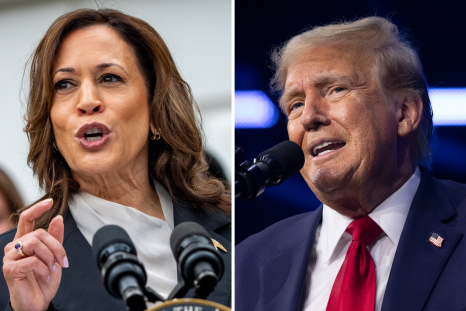The 2024 U.S. election is set to be the most expensive in history, with an estimated $15.9 billion in total spending. This shatters the previous record of $15.1 billion set in 2020 and more than doubles the $6.5 billion spent in 2016. The presidential race alone is a major contributor, driven by massive fundraising efforts from both Vice President Kamala Harris and former President Donald Trump.

Harris and Trump have raised a combined $2.7 billion through campaign committees and Political Action Committees (PACs). Harris leads with $1.6 billion in contributions, while Trump has secured $1.1 billion. Their combined total surpasses the $2 billion raised by Trump and Joe Biden in 2020, highlighting the financial stakes in this high-profile race.
Billionaire Donors Fuel Campaigns
The race is powered by substantial support from billionaire backers. Harris has garnered support from prominent names such as Michael Bloomberg, Bill Gates, Laurene Powell Jobs, and Melinda French Gates, each donating heavily to boost her campaign. Notably, Bloomberg and Gates have contributed $50 million each. Trump, on the other hand, has received significant financial backing from Elon Musk, who donated over $120 million, and Timothy Mellon, who contributed over $100 million.
Forbes reports that a total of 135 billionaires have supported one of the two candidates, with 83 favoring Harris and 52 backing Trump. Many of these donors have a history of supporting Democratic or Republican candidates, though some have not yet disclosed their contributions due to Federal Election Commission (FEC) reporting timelines.
Harris Draws Billionaire Support Despite Criticism of Wealth Policies
Harris' billionaire supporters might seem surprising given her criticism of Trump's favorable policies for the wealthy. However, many see Harris as a proponent of policies that align with business interests, especially in technology, healthcare, and sustainability. Silicon Valley billionaires, familiar with Harris from her days as California's attorney general, see her as a stabilizing figure likely to support growth in these key sectors.
In a letter signed by several prominent donors, Harris was endorsed as a candidate who supports "fair and predictable policies," which investors find appealing given the U.S. economy's current strength. A survey of millionaire investors indicated a 57% preference for Harris, with respondents citing positive prospects for stock sectors that align with her policy positions.
Trump Holds Record as Wealthiest Presidential Candidate
Trump, whose net worth briefly surged to $8 billion in October due to a spike in Truth Social stock, still holds the title of the wealthiest general election presidential candidate. His fortune, though it has since dipped below $6 billion, positions him uniquely in this campaign. Comparatively, Harris' personal wealth is a fraction of Trump's.
Though Trump's wealth and previous presidency make him a magnet for certain billionaire backers, he also has wealthy individuals withholding endorsements. For instance, Amazon founder Jeff Bezos and JPMorgan Chase CEO Jamie Dimon have both refrained from officially supporting either candidate, even as Dimon hinted at his preferences privately. Meanwhile, influential tech figures like Meta's Mark Zuckerberg and hedge fund giant Ray Dalio have also chosen to remain neutral, reflecting a cautious approach among some of the country's wealthiest individuals.
Final Donations Still Pending
As Election Day nears, the total amount raised could climb further. Billionaire contributions continue to be reported, and some may only be disclosed after the election due to FEC filing schedules. Political donations from the ultra-wealthy underscore the financial dynamics that drive today's elections, making this cycle a testament to the evolving role of big money in U.S. politics.
With Election Day approaching, these billionaires' choices may reflect not just personal loyalties, but broader business strategies and economic outlooks. The impact of this financial influx will likely be felt well beyond November, shaping policy directions for the next presidential term.








